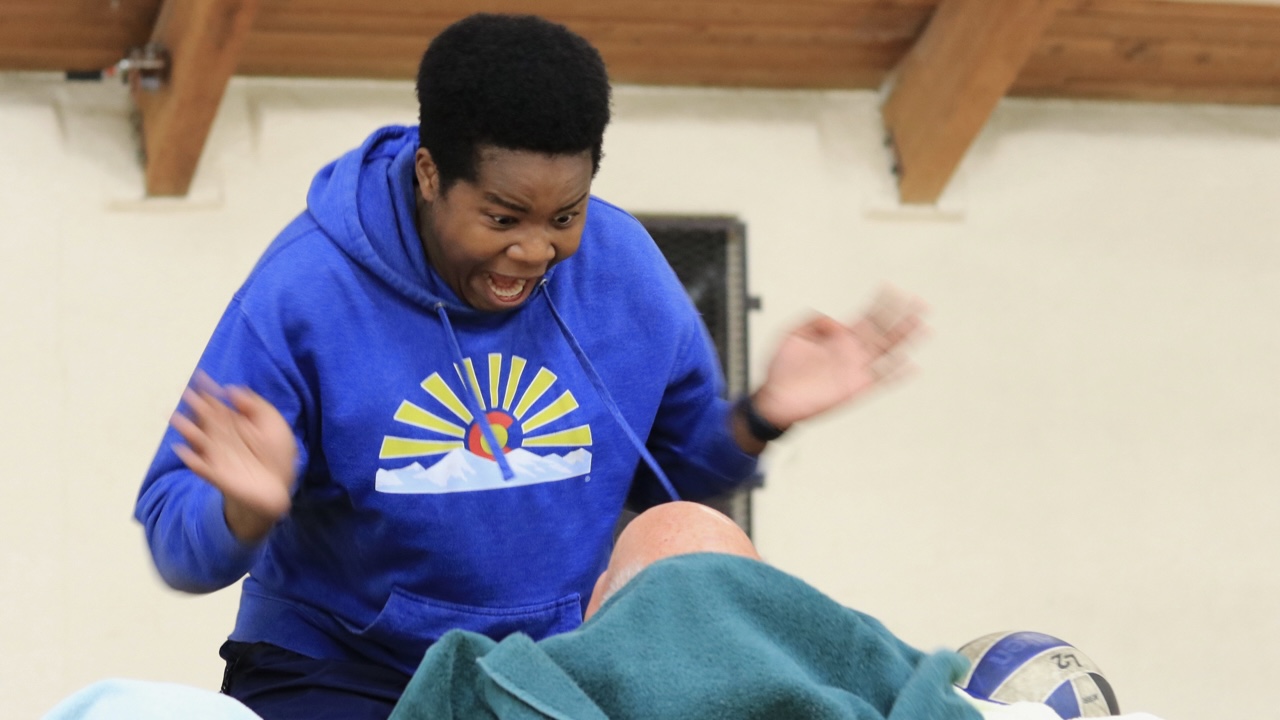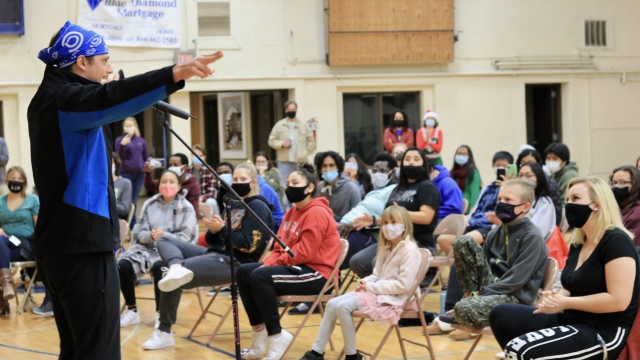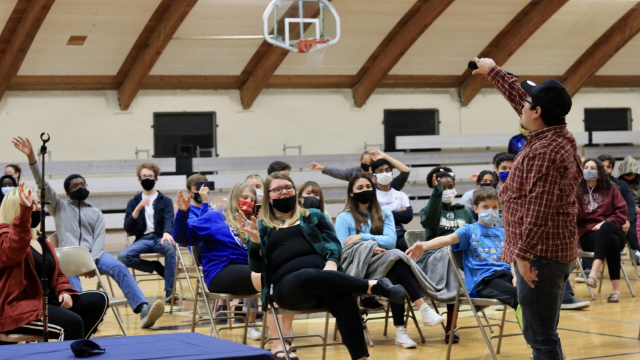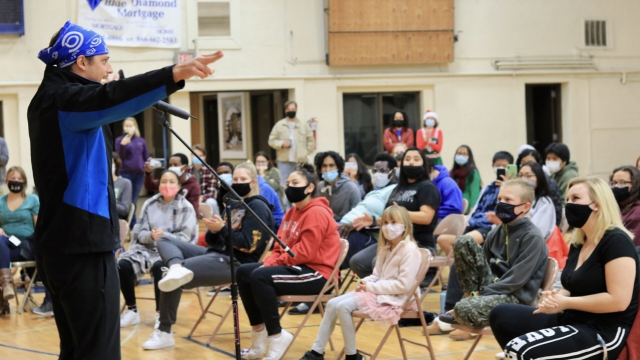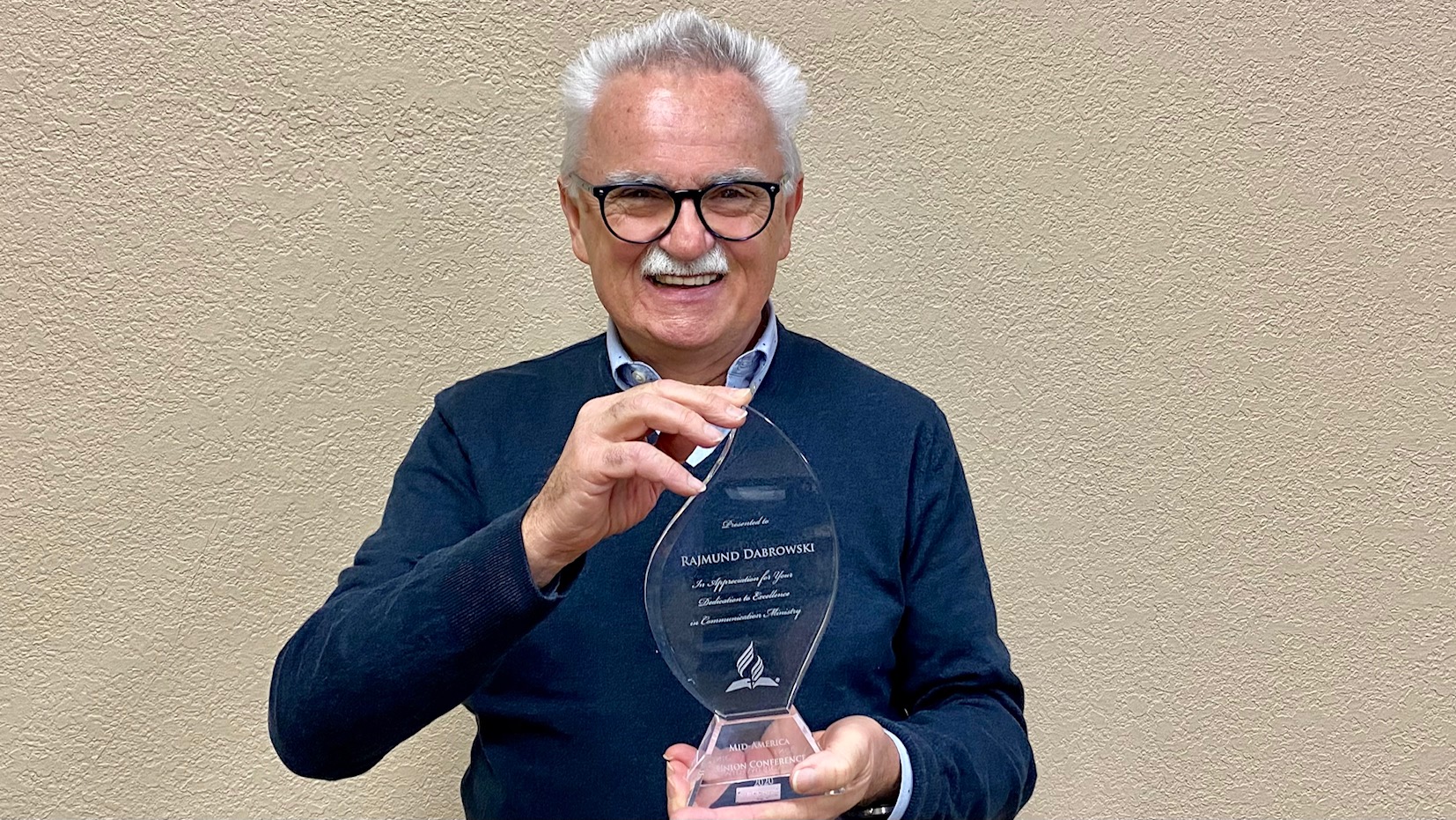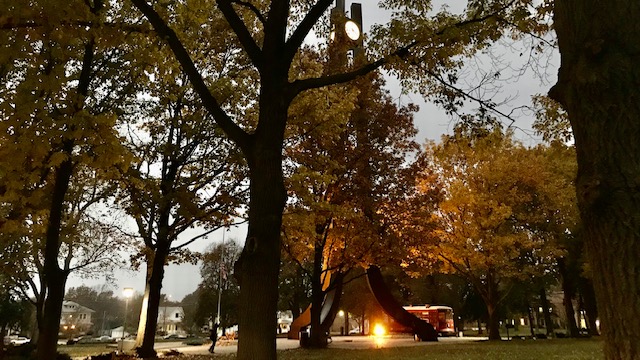By RMCNews – Denver, Colorado … The pandemic is real and it is an enemy of humanity affecting multiple families, pastors, employees at RMC schools, conference office employees, and church members.
“A few months ago, I visited a church where a visitor asked if I knew of any Adventists who had come down with COVID. I gave him a description of those that I knew had contracted COVID and of some conferences that have lost many members to death from this disease,” Eric Nelson, RMC VP of Administration said.
“We have had a number of pastors, a few staff in the office, and many members who have contracted this virus and even more who have been in contact with a diagnosed individual. Churches have had to close for 14 days after someone attended and was later diagnosed. Thankfully, most of our schools have been spared from outbreaks, but not all,” Nelson added
While some have an easy battle with the disease, others face a challenging recovery.
Samantha Nelson, spouse of Pastor Steve Nelson, who both are currently fighting COVID, posted the following on her Facebook page this week: “Last night was rough and not much sleep for either of us. Tylenol helped bring his temperature down some. His oxygen levels are still lower than they should be though. The hospital will not take him. They just instructed us to continue doing what we are doing. Our doctor is being kept informed and is monitoring the situation.
Members need to be careful about sharing home remedies with anyone who is sick with COVID and should encourage their neighbors and friends who have contracted this disease to follow only professional health advice.
“Please, I know everyone means well and we appreciate the thoughts and advice, but please, please, please stop with all the unsolicited remedy advice. He is not even capable of doing many of the things suggested. We are already doing natural remedies and taking all the vitamins, etc., that are supposed to help. The constant “do this, take this, etc.,” is really stressing us out. I beg you, please stop. Thank you,” stated Samantha.
We can join the fight against this invisible enemy by wearing a mask because we, as Adventists, are not spared from the pandemic.
“Interestingly, during the 1918 epidemic, Adventist churches were working to sew masks and hand out patterns to make even more as a preventive measure against the flu epidemic. Doing the same activity now is something specific that we can do to provide some protection,” Eric Nelson said.
Nelson added, “The three simplest and most effective steps that we can all take is to keep social distance, sanitize our hands often, and wear a mask. These are small accommodations, simple preventive measures that protect those we come in contact with. And they keep us safer.”
A nurse leader at the Kettering Adventist Health Network of Hospitals in Kettering, Ohio posted the following plea on social media: “Today, we are headed toward a very difficult time. Please continue to keep all of our physicians, APPs, nurses, respiratory teams, and many others in your prayers as we keep fighting this battle. And for goodness sake, wear your mask and stay home when you can!”
Nelson echoed the need to wear masks when in public, “I am so glad medical workers who serve us, when we are ill, wear masks to keep us and themselves safe. If they can do that for protection, we can do the same.”
The battle is far from over.
“It will be a while before this virus runs its course. We need to continue to do all we can to be careful, use caution, and help keep ourselves and others safe through this time. We are learning to trust God more as we face these challenging times. We are also learning to work together even as we are apart,” Nelson stated.
Even through the pandemic, ministry is happening.
“Ministry is still taking place in our churches. Even when the church is not able to meet at Newday Seventh-day Adventist Church in Parker, Colorado, small groups of ten are meeting to watch the church [service] and provide fellowship. They have a vital connection to the church in spite of the limitations. Pastors and churches have been wonderfully adept at quickly making changes to serve our members and community,” Nelson said. “Pastors and members are reaching out to shut-ins and isolated members to encourage or to pray with them by phone.”
Nelson has some final advice for RMC members when they interact with first responders and essential workers: “We can share a word of encouragement and thanks to those who are our daily providers in the store or gas station, those who provide medical help, etc. They receive plenty of criticism and frustration from people. Why not give them a bright smile and a pleasant time of thanks. They can see our eyes smiling.”
As we face the long winter ahead, it may seem like hope is lost; it may seem like we are on our own; it may seem there is no end to this battle. However, there is good news.
Ed Barnett, RMC president reflected on the basic truths we all share: “God is still in control of this world that we live in. As Seventh-day Adventist Christians, we need to do whatever we can to protect ourselves and others around us. That is done out of courtesy and love for other people. If ever there is a time to share the love of Jesus, it is today. The World does not know how this old world is going to end, but we have read our Bibles and know that better days are ahead. Christians need to stand out because they love and care for others. The world needs to see that!”
“If they do, they can’t help but realize that Christians are different. Then they will seek answers about how and why we can have hope even during a pandemic. They will want to know how we can have hope when the world around us is falling apart. Stick close to Jesus and you can be encouraged even in trying times,” Barnett further commented.
–RMCNews; photo by Pixabay

